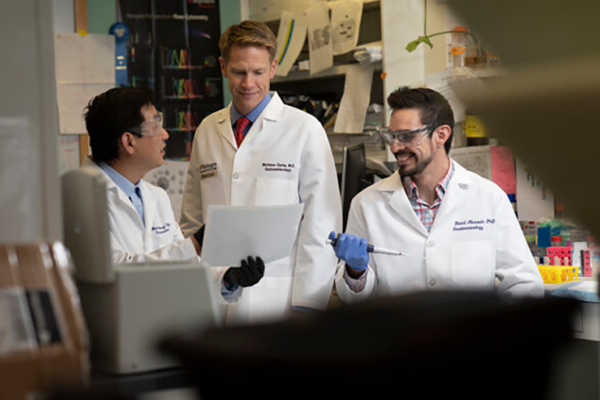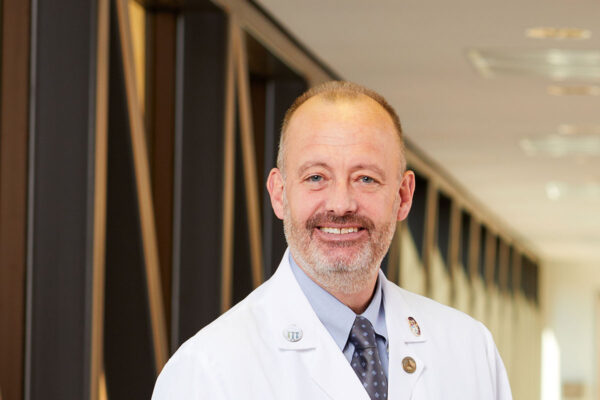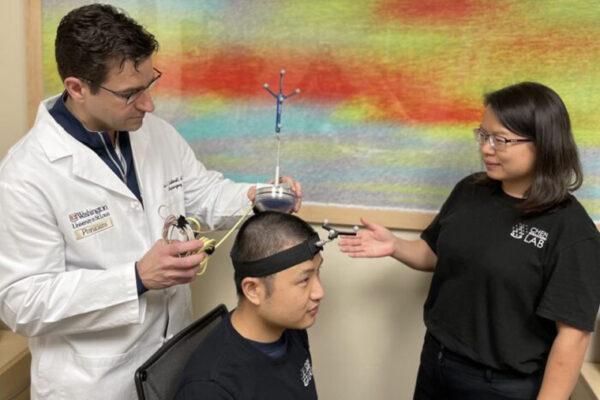
Matthew A. Ciorba, MD, a professor of medicine and director of the Inflammatory Bowel Disease Center at Washington University School of Medicine in St. Louis, has received a $2.8 million award from the National Cancer Institute (NCI) of the National Institutes of Health (NIH) to evaluate a new treatment in combination with routine radiation and chemotherapy in patients with locally advanced (Stage II or III) rectal cancer.
Indoleamine 2,3 dioxygenase 1 (IDO1) is an enzyme that is overactive in colorectal cancer, promotes tumor growth and prevents immune cells from attacking the cancer. Preclinical studies showed that blocking IDO1’s activity made radiation more effective in slowing or stopping tumor growth while also reducing radiation-related side effects.
The funding will support, in part, the second phase of a clinical trial to determine if the drug epacadostat, which inhibits IDO1, improves outcomes in rectal cancer patients when combined with radiation therapy. The hope is that combining radiation with IDO1 inhibition will increase cure rates and lower the percentage of patients who eventually need surgery, while also protecting them from the toxicities of radiation.
The trial will be led by Katrina S. Pedersen, MD, an associate professor of oncology, in collaboration with Hyun Kim, MD, PhD, an associate professor of radiation oncology, Ryan C. Fields, MD, the Kim and Tim Eberlein Distinguished Professor in the Department of Surgery, and David DeNardo, PhD, a professor of medicine.
Research reported in this press release was supported by the NCI of the NIH under award number 1R01CA278197-01A1. The content is solely the responsibility of the authors and does not necessarily represent the official views of the NIH.


